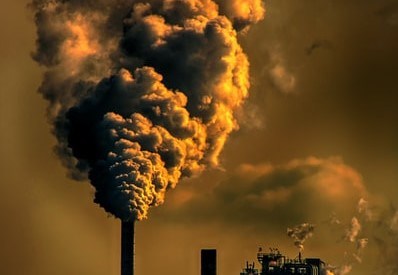After less than halfway in the global climate change conference, there is room for cautious optimism according to EU negotiators but everything depends on ensuring that commitments to reduce emissions will be backed by actions plans.
The Intergovernmental Panel on Climate Change (IPCC) warned in a report ahead of the summit that limiting warming to close to 1.5°C or even 2°C will be beyond reach unless there are immediate, rapid and large-scale reductions in greenhouse gas emissions in the coming two decades.
The report sent shockwaves around the globe and was described as a code red for humanity by the UN Secretary-General António Guterres. Every increase by a fraction of a degree counts and might trigger crucial ecosystems beyond critical thresholds and spell irreversible damage to Earth.
“We arrived with an ambitious mandate to accelerate global climate cation so that we can reach our targets of reducing green-house gas emissions by 2030 and achieve net-zero emissions by 2050,” said Tina Kobilsek, representing the Slovenian EU Presidency, at a technical briefing on Thursday (4 November).
EU’s mitigation goal is to limit global warming to 1.5°C and to scale up support for climate adaptation including financial assistance to developing countries.
“The conference started smoothly,” she added. “COP26 is a unique opportunity for Slovenia to coordinate the EU negotiations and to represent EU when negotiating with third parties.”
Until now, leaders attending the first phase of the conference have pledged to stop deforestation and to reduce emissions of methane, the most potent greenhouse gas, by 30 % by 2030. Many countries have updated their national commitments to reduce emissions, though not always with the necessary action plans to back them or enshrining them in law.
However, the leaders of the two most crucial countries, China and Russia, were absent from the conference.
EU countries have made coal phaseout announcements, including Poland and Ukraine, which along with Germany make up the top three heaviest users of the fuel in Europe. European Commission President Ursula von der Leyen has announced €1 billion as the EU contribution to the Global Forests Finance Pledge.
€250 million of the amount will go to the Congo Basin, the second biggest tropical forest after the Amazon, covering eight countries in Africa. A Commission spokesperson told The Brussels Times that the exact details will be worked out in the coming weeks and months in the context of the programming.
“We expect all countries to be 1.5°C aligned as soon as possible,” said Jacob Werksman from the European Commission’s Directorate-General for Climate Action and EU chief negotiator at the conference.
According to the preliminary analysis of the COP26 secretariat, the commitments made at the conference are not enough and the world is still set for global warming well above 1.5°C. “We are still analysing the commitments.“
As regards the long-term goal of net-zero emissions and climate neutrality in the mid-century, he was somewhat more optimistic but underlined that everything depends on the implementation. He referred to the so-called rulebook adopted by the parties to the Paris Agreement which sets detailed rules and procedures for implementing the agreement.
“Glasgow will be judged by the rulebook,” he said. “The assumption behind the rulebook is that commitments will be implemented and that the targets don’t stay just targets.”
“We have done fairly good until now but it’s too early to say that we are on track.” He did not exclude the need for another summit, COP27, to ensure that the world will be set on the right pathway to limiting global warming. COP27 will take place in November 2022 in Egypt’s Sharm El Sheikh City, a region which is more affected by global warming than Europe and most other regions in the world.
M. Apelblat
The Brussels Times

